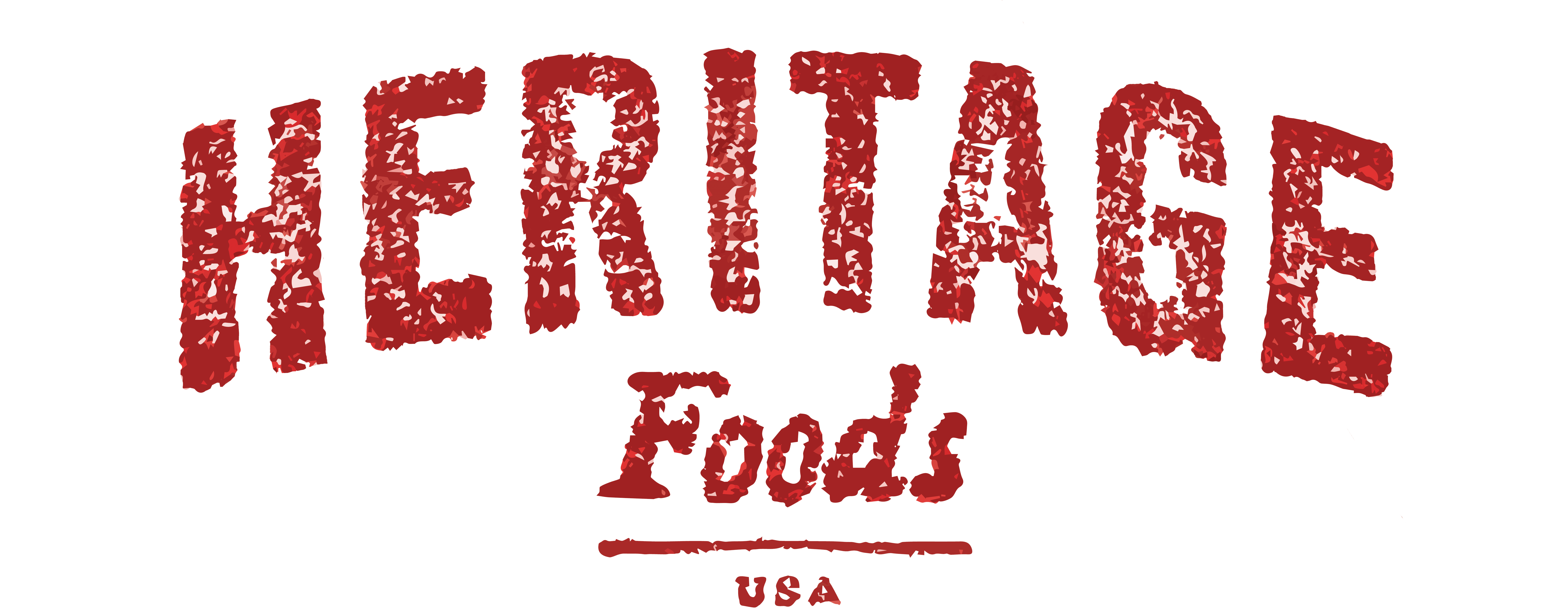Shop 25% OFF Sitewide through 2/26 with code SITEWIDE — sale items included!
100% Customer Satisfaction Guaranteed | Shop Our Bestsellers!
Orders received by 10am EST ship same day Monday-Thursday, unless otherwise requested.
Call or email us with any questions at (718) 389-0985 or info@HeritageFoodsUSA.com!
All our Provisions ship FREE!
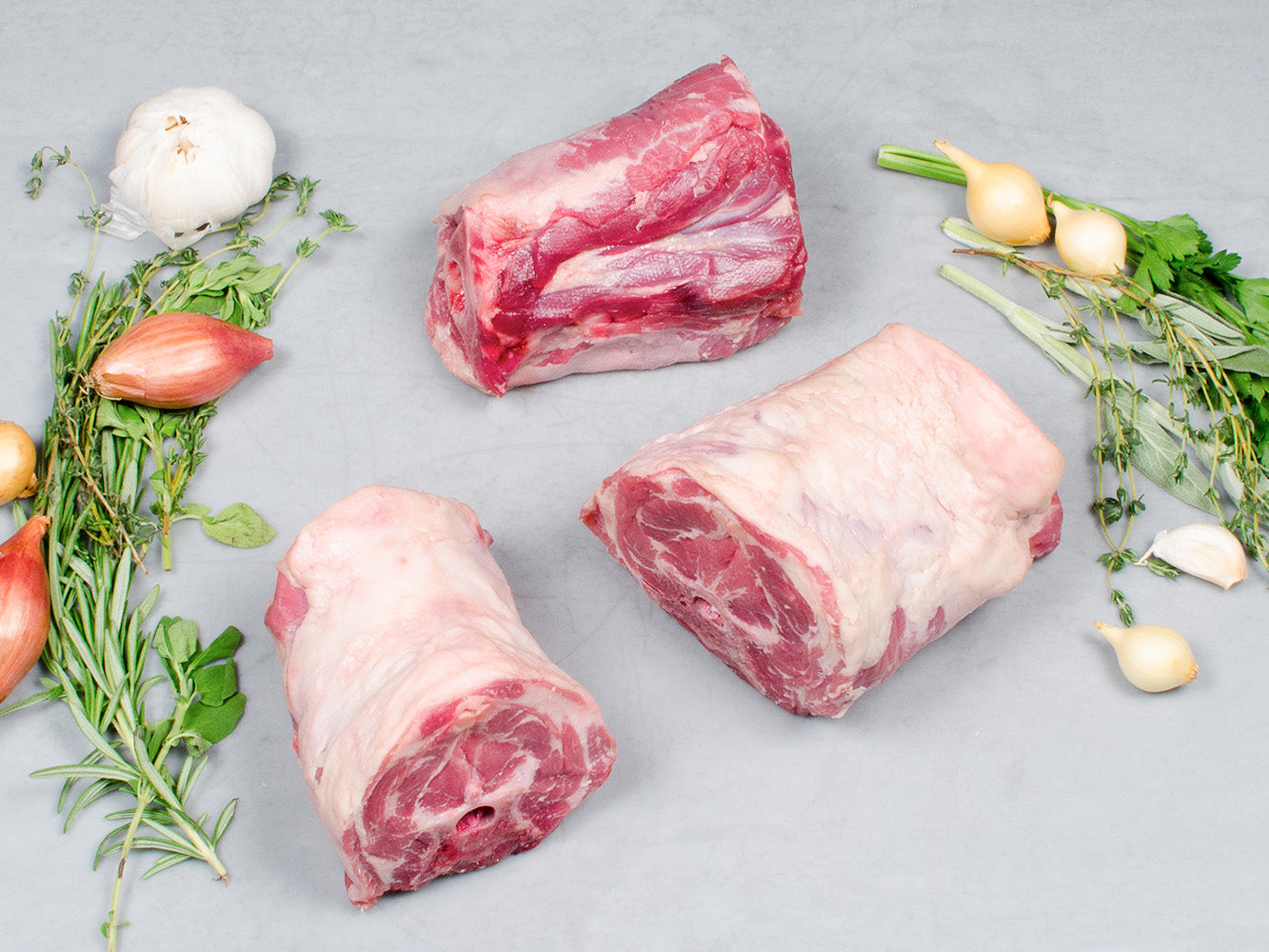
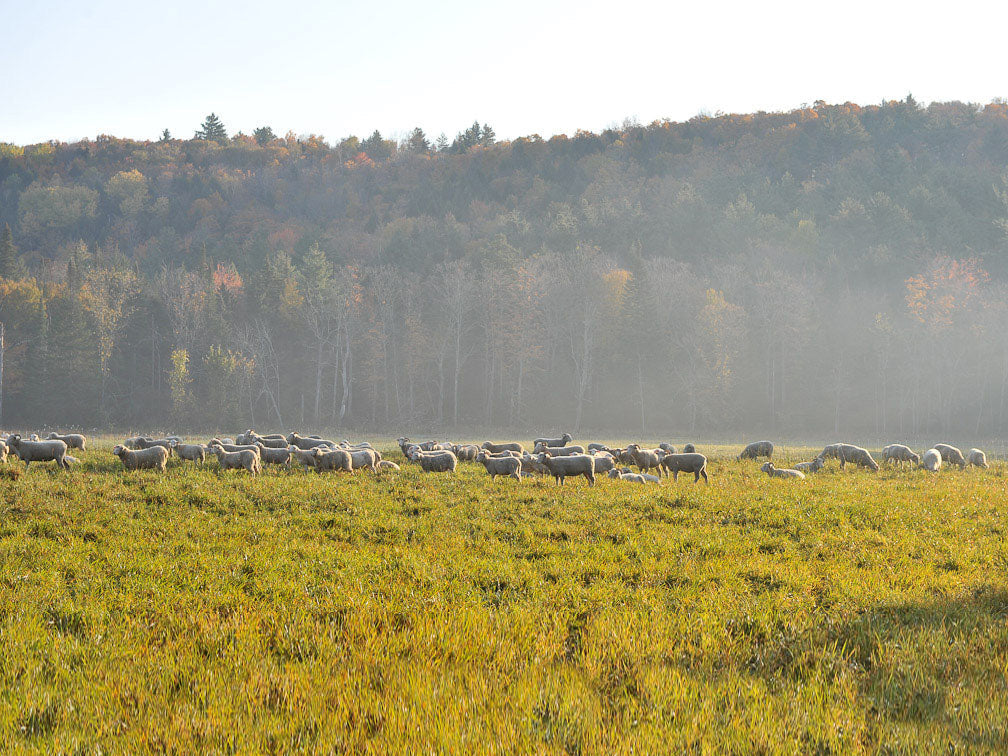
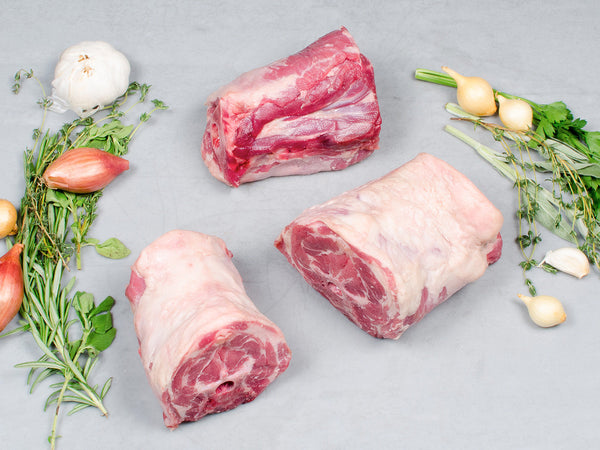
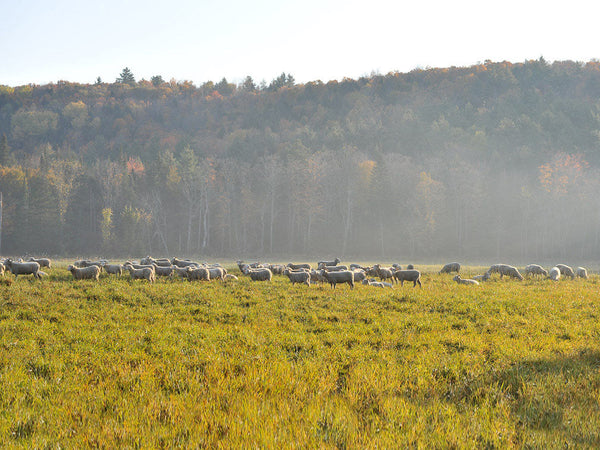


3-4lb total — a delicious chefs secret from pasture raised heritage breed sheep — Tunis or Dorset Horn
Lamb Neck
3-4lb total
Dorset Horn or Tunis
Lamb neck is known as the chefs secret cut because of how delicious it is and because of its versatility and high yield: necks are thick, meaty and provide more portions than other slow cooked cuts. The high fat that is part of the gelatin rich lamb neck breaks down with slow cooking, giving the cut amazing flavor and texture. The bone also infuses this cut with added flavor and depth. After braising, the cooking liquid becomes the most unctuous lamb stock that you can use for the base of many sauces.
Our sheep are sourced from our long time farm partners in Vermont, Tamarack Sheep Farm, where three rare breeds of lamb are raised on pasture — breeds that have been raised there since the 1920s. Lamb is a seasonal livestock that is available four or five times a year.
Ben Machin and Grace Bowmer raise three breeds of heritage breed sheep on their beautiful Tamarack Sheep Farm located on the rolling hills and green pastures of Vermont.
As Ben explains, “Grass, it is at the heart of our operation, and restoring grassland and soil is one of the reasons that we scaled up our operation.” All of the animals on Tamarack Farm have access to grass 100% of the time. In the summer, this means grass growing in the field, in the winter, or for animals that are housed in the barn, this means hay.
Ben and Grace make all their own hay, managing about 120 acres of hay land. They have four old John Deere tractors, and all the equipment to make round bales. They fertilize the fields and cut them three or four times each year to keep the quality high. Supplements for the lamb include whole grains as opposed to ground or pellet feed.
Most of the more successful commercial breeds of lamb are a mix of quite a few other breeds — hybrid vigor is a really big deal in the industry. But Ben and Grace are 100% committed to heritage breeds, both because they have a family tradition that’s almost 100 years old, and because they feel that the genetics are potentially quite important to the future.
The fastest growing sheep breed worldwide is the hybrid White Dorper and it would not exist if not for the foundational Horned Dorset genetics that were used to create it, the kind currently grown on Tamarack Farm. Dorpers are proving essential to allowing sheep farmers to adapt to climate change in various parts of the world, and it’s the heritage breed in them that allows them to be so resistant and strong. Ben and Grace have participated in a program with the Swiss Village Foundation and the Smithsonian, who collected eggs and semen from 80 of their animals over a 10-year period to store in cryogenic freezers.
There are incredible challenges to raising heritage breed animals. Heritage breeds are inherently less productive, in general, than the modern breeds. But for Ben and Grace it’s worth it: Ben’s great-grandfather started a Tunis flock in the 1920s. Years later, Ben's grandfather, Herb, began to work with Dorset Horn sheep for a 4-H project. In 2006, in Herb’s last days, Ben made the monumental and wonderful decision to dedicate himself to revitalizing the family flock. Grace joined Ben in 2008. Grace came with a background in architecture, site design, landscaping, and gardening, and together they purchased the land and built a barn.
Today with a fifth generation in the mix, there is even more reason to continue their efforts on the farm despite new challenges. Many of their local restaurant customers have taken a beating with recent global events, but sunny days on grassy pastures look to be in the future, which is good news for chefs and lovers of lamb! Ben and Grace have increased production on Hogget (1-2 year old sheep) and mutton (2+ year old sheep) on their farm because of increased demand.
According to Ben, the Tunis breed is lean but has the richest taste of all. He remembers the Navajo Churro as being a bit drier but still delicious and succulent. The Dorset Horn is very moist and mild flavored. Ben especially loves the Horned Dorset, “because both males and females grow horns!” Amazingly the taste and flavor of all three breeds becomes more subtle and mild as the animal ages on the hoof.
The Tunis is earthy with notes of buttermilk. The Dorset is lighter, with a clean, floral finish. The Navajo-Churro lamb is remarkably tender — even the braising cuts can be grilled.
Tunis and Dorset Horn Breeds of Lamb
Tunis: Originally from Tunisia, the breed was brought to the U.S. as a gift to George Washington and raised by the first three Presidents. This is the same lamb as was written about in the Bible, but the modern version has a less fatty tail.
Dorset Horn: A breed of sheep that spread over Dorset, Somerset, Devon, and most of Wales, in the 1750s this is the breed the English with a fine palate would eat for Christmas! Very few farmers still raise this endangered breed.
How to Prepare
Our favorite technique is to sear the surface of the neck on all sides, then braise slow and low with your preferred highly flavored liquid. Allow a few hours to cook and, when the neck is ready, the meat will fall from the bones and the liquid will thicken as the nutrient rich marrow breaks down. Take care to search the finished meat and liquid thoroughly as there may be small bones that need to be removed. For the braise, we find a classic red wine and stock combination with roughly chopped mirepoix and a bouquet garni to be the secret to a delightful autumn dinner. Serve with your favorite mashed or roasted vegetable dishes.
© 2026, Heritage Foods Powered by Shopify
